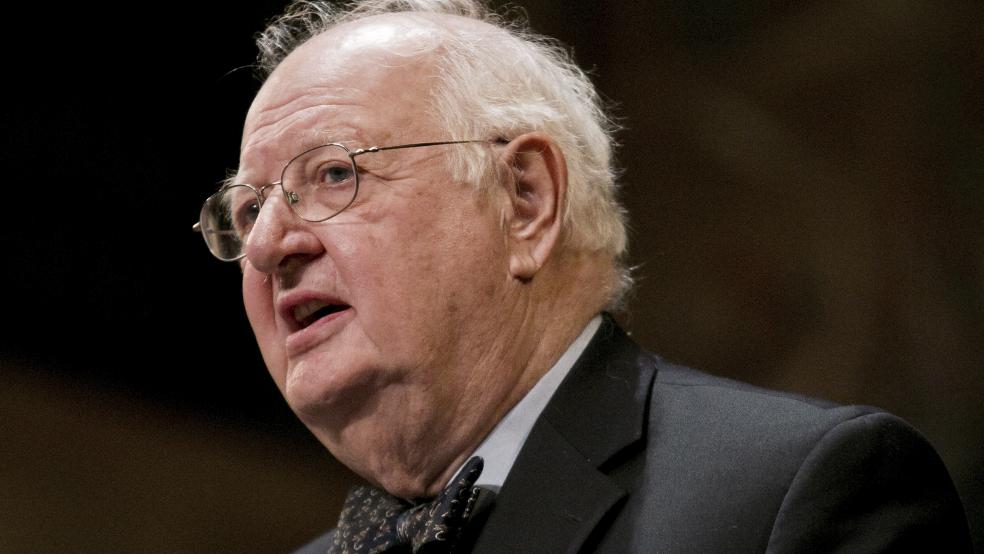British-American economist Angus Deaton, who today was named this year’s winner of the Nobel Memorial Prize in Economic Sciences, stands out in the rarefied world of academic economics because of his insistence that in addressing problems like poverty and inequality, researchers need to, in a sense, get their hands dirty.
Much economic research is built on the foundation of complex models, in which the human actors are idealized model consumers, automatically making the kinds of choices that economists think they ought to, or are likely to, make. One of Deaton’s great insights was that, when it comes to measuring the economic wellbeing of a population, it is essential to drill down and understand individual choices about consumption as much as possible. In other words, its’ important to look at what people actually spend their money on rather than top-down measures of income distribution.
Related: U.S. Still Behind Other Countries in Effective Health Care Spending
Fellow economist Tyler Cowen, of George Mason University, called the Nobel Committee’s decision “brilliant.”
“'Understanding what economic progress really means’ I would describe as his core contribution, and analyzing development from the starting point of consumption rather than income is part of his vision,” Cowen writes. “That includes looking at calories, life expectancy, health, and education as part of living standards in a fundamental way.”
He adds, “Think of Deaton as an economist who looks more closely at what poor households consume to get a better sense of their living standards and possible paths for economic development. He truly, deeply understands the implications of economic growth, the benefits of modernity, and political economy.”
Deaton has focused much of his research on developing countries, but has also done considerable analysis of poverty and inequality in the U.S., his adopted country. (Deaton holds dual British and U.S. citizenship.) In the U.S., he has helped cement the usefulness of household survey data — information gathered from talking to thousands of individual consumers about their spending and general welfare — as a means of understanding the population’s overall welfare.
His work has had enormous influence in the U.S., particularly among those who study how economic policy, particularly programs designed to aid the poor, actually work.
Generally a cautious optimist about the progress being made to pull people out of poverty, Deaton has, however, offered sharp criticism of the U.S. economic system, doing research that revealed, for instance, how the “equality of opportunity” that many politicians like to believe exists here is an illusion.
“There is much to be said for equality of opportunity, and for not penalizing people for the success that comes from their own hard work,” Deaton wrote in his 2013 book, The Great Escape. He added:
“Yet, compared with other rich countries, and in spite of the popular belief in the American dream that anyone can succeed, the United States is in fact not particularly good at actually delivering equal opportunities.
“One way of measuring equality of opportunity is to look at the correlation between earnings of fathers and sons. In a completely mobile society, with perfect equality of opportunity, your earnings should be unrelated to what your father earned; by contrast, in a hereditary caste society, in which jobs are handed from one generation to the next, the correlation would be 1.
“In the United States, the correlation is 0.5, which is the highest of the OECD countries and is exceeded only by those of China and a handful of countries where there appears to be the least equality of opportunity.”
Deaton’s sense of the usefulness of traditional economic thought in terms of addressing poverty might best be summed up in his dismissal of what economists call “Pareto principle” economics. A “Pareto improvement” in an economy is one that makes someone better off without making anyone else worse off. A “Pareto optimal” system is an economy in which you cannot change the distribution of resources without making someone worse off.
“There is nothing wrong with the Pareto principle, and we should not be concerned over others' good fortune if it brings no harm to us,” Deaton writes. “The mistake is to apply the principle to only one dimension of wellbeing — money — and to ignore other dimensions, such as the ability to participate in a democratic society, to be well educated, to be healthy, and not to be the victim of others' search for enrichment.”





